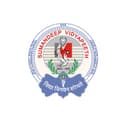Bachelor of Traditional Medicine System (BTMS)
OR
Prepared by Docthub Courses Team ∣
Last updated on 02 Aug 2024
Overview
Bachelor of Traditional Medicine System (BTMS) is an undergraduate degree program that focuses on traditional and alternative medicine practices.
The National Board of Alternative Medicine is designed to provide students with knowledge and skills related to ancient Indian medicine systems such as Ayurveda, Naturopathy, Yoga, Unani, Siddha, and Homeopathy.
The BTMS course is a comprehensive program that covers various aspects of traditional medicine systems.
It provides students with an in-depth understanding of the principles and practices of different traditional medicine systems.

Table of Content
Highlights
| Details | Bachelor of Traditional Medicine System (BTMS) |
| Level | Bachelor’s degree |
| Duration | 4 Years |
| Exam Type | Semester-wise |
| Course Fees | INR 50,000-2 Lakhs |
| Min. Qualification Requirement | 10+2 in the science stream with Physics, chemistry, and biology. |
| Average Salary | INR 2-4 Lakhs |
| Selection Process | Entrance Exam/Merit-based |
| Min. Aggregate Score | 50% or more in 10+2 in science stream |
Eligibility
Alternative medicine course eligibility includes candidates who must have completed their 10+2 education in the Science stream with Biology as one of the subjects. Some colleges may also have additional eligibility criteria, such as minimum qualifying marks or age limit.
Fees
The fees for the BTMS course may vary depending on the college or university. On average, the fees for this course can range from INR 50,000 to INR 2 lakhs per year.
Who Should Do This Course?
Students who are interested in traditional medicine systems and want to pursue a career in the field of healthcare can opt for this course.
This course is suitable for those who have a passion for alternative medicine practices and want to explore the ancient Indian medicine systems.
Why Study This Course?
The BTMS course provides students with an opportunity to learn about traditional medicine systems and their role in modern healthcare.
This course can help students develop a unique skill set that can be useful in various fields related to healthcare.
Admission Process
The admission process for the BTMS course may vary depending on the college or university.
Eligibility Criteria: Check the eligibility criteria for the BTMS program you are interested in. The general eligibility criteria usually include:
- Completion of 10+2 with a minimum of 50% marks in science subjects (Physics, Chemistry, and Biology) from a recognized board.
- Some institutes may also require applicants to pass an entrance exam conducted by the college or university.
Application Process: Fill out the application form available on the college or university website. The application form will typically require you to provide your personal details, academic qualifications, and any other relevant information.
Entrance Exam: Most colleges and universities conduct an entrance exam for admission to the BTMS program. The entrance exam will typically cover topics from physics, chemistry, biology, and general knowledge.
Counseling and Selection: If you pass the entrance exam, you will be called for counseling. During counseling, you will be allotted a seat in the program based on your entrance exam marks and preferences.
Admission: To complete the admission process, you will need to pay the required fees and submit the necessary documents.
Documents Required:
The following documents are typically required for admission to the BTMS program:
- 10+2 mark sheet
- Entrance exam scorecard
- Character certificate
- Migration certificate (if applicable)
- Medical fitness certificate
Entrance Exam
Some colleges may conduct an entrance exam for admission to the BTMS course. The entrance exam may test the candidate's knowledge of Biology, Chemistry, and Physics.
| Entrance Exams | Body Conducting Entrance Exams |
| Kerala Paramedical Entrance Examination (KLEE) | Commissioner of Entrance Examinations, Government of Kerala |
| Karnataka Common Entrance Test (CET) | Karnataka Examinations Authority |
| West Bengal Joint Entrance Examination (WBJEE) | West Bengal Council of Higher Secondary Education (WBCHSE) |
| Tamil Nadu Common Entrance Test (TANCET) | Tamil Nadu Government |
| All India Entrance Test for Ayurveda (AIET Ayurveda) | National Testing Agency (NTA) |
| National Eligibility and Entrance Test (NEET) | National Testing Agency (NTA) |
Syllabus
Alternative medicine courses list includes subjects such as Anatomy, Physiology, Pharmacology, Pathology, Microbiology, Ayurveda, Naturopathy, Yoga, Unani, Siddha, Homeopathy, and more.
| Year/Semester | Courses |
| YEAR 1 Semester I and II | Anatomy and Physiology I Biochemistry I Pathology I Introduction to Traditional Medicine |
Anatomy and Physiology II Biochemistry II Pathology II Principles of Traditional Medicine | |
YEAR 2
| Pharmacology I Traditional Medicine Diagnosis and Treatment Clinical Practice I |
Pharmacology II Traditional Medicine Therapeutics Clinical Practice II
| |
| YEAR 3 Semester V and VI | Research Methodology I Traditional Medicine and Public Health Clinical Practice III |
Research Methodology II Traditional Medicine and Mental Health Clinical Practice IV | |
| YEAR 4 Semester VII and VIII | Clinical Training and Practicum Thesis or Capstone Project Professional Development and Entrepreneurship Clinical Practice V |
Traditional Medicine and Mental Health Traditional Medicine and Pediatrics Clinical Practice VI |
Top Private Colleges
Some of the top private alternative medicine colleges in India are:
- Himalayan Institute of Technology, Dehradun
- Shri Rawatpura Sarkar University, Raipur
- Shri Krishna Ayush University, Kurukshetra
- Dhanvantari Ayurvedic College, Chandigarh
- JSS Ayurveda Medical College and Hospital, Mysuru
- Satyamurti Institute of Ayurveda and Yoga Therapy, Chennai
- The Jain Vishva Bharati Institute, Ladnun
- Siddha Central Research Institute, Chennai
- Bharatiya Vidyapeeth's College of Ayurveda, Pune
- Kerala Ayurveda Samajam (KAS) College of Ayurveda and Pharmacy, Thiruvananthapuram
Top Govt Colleges
Some of the top government alternative medicine colleges in India are:
- Government Ayurvedic College, Guwahati
- National Institute of Ayurveda, Jaipur
- Rajiv Gandhi University of Health Sciences, Bengaluru
- Ayurvedic and Unani Tibbia College, Delhi
- Institute of Post Graduate Ayurvedic Education and Research, Kolkata
- Government Ayurveda Medical College, Bangalore, Karnataka
- National Institute of Homoeopathy, Kolkata
- Government Homeopathic Medical College, Hyderabad
- Government Ayurveda College, Andhra Pradesh
- Government Siddha Medical College, Tamil Nadu
Scope
After completing the BTMS course, students can pursue a career in various fields related to healthcare. They can work as Ayurvedic doctors, Naturopaths, Yoga instructors, Unani practitioners, Homeopathic doctors, and more.
Further Study Options
Students who wish to further their education can opt for a Master's degree in Traditional Medicine System or related fields such as Public Health or Healthcare Management.
Career Opportunities After This Course
Some of the career opportunities after completing the BTMS course are:
- Ayurvedic Doctor
- Naturopath
- Yoga Instructor
- Unani Practitioner
- Homeopathic Doctor
- Wellness Consultant
- Healthcare Researcher
- Healthcare Manager
Salary
The salary for professionals in traditional medicine systems may vary depending on their job profile and experience.
On average, the starting salary for freshers in this field can range from INR 2 lakhs to INR 4 lakhs per annum.
With experience and expertise, professionals can earn higher salaries.
Explore colleges for this course
Quick Go Links

Explore this course by location..
by States
by Cities
Related Job Roles
Related Job Vacancies
View All 2 Jobs

FAQS
What is a Bachelor of Traditional Medicine System degree?
Bachelor of Traditional Medicine System (BTMS) is an undergraduate degree program that focuses on traditional and alternative medicine practices.
This course is designed to provide students with knowledge and skills related to ancient Indian medicine systems such as Ayurveda, Naturopathy, Yoga, Unani, Siddha, and Homeopathy.
What are the benefits of getting a Bachelor of Traditional Medicine System degree?
The national board of alternative medicine course provides students with an opportunity to learn about traditional medicine systems and their role in modern healthcare.
This course can help students develop a unique skill set that can be useful in various fields related to healthcare.
Graduates can pursue careers in various fields such as healthcare, research, education, and entrepreneurship.
What are the career prospects for graduates with a Bachelor of Traditional Medicine System degree?
Graduates with a BTMS degree can pursue careers in various fields related to healthcare such as Ayurvedic doctors, Naturopaths, Yoga therapists, Unani practitioners, Siddha practitioners, and Homeopaths.
They can also work as healthcare consultants, researchers, educators, and entrepreneurs.
What are the admission requirements for a Bachelor of Traditional Medicine System degree program?
To be eligible for the BTMS course, the candidate must have completed their 10+2 education in the Science stream with Biology as one of the subjects.
Some colleges may also have additional eligibility criteria, such as minimum qualifying marks or age limit.
What are some of the challenges and opportunities for traditional medicine practitioners?
Some of the challenges faced by traditional medicine practitioners include the lack of recognition and acceptance of traditional medicine systems by the mainstream healthcare industry.
However, there are also opportunities for traditional medicine practitioners to contribute to healthcare by providing alternative solutions and promoting holistic health practices.
Related Course titles

Qualifications
12th Science PCB
Related Specialty
Traditional Mongolian Medicine

